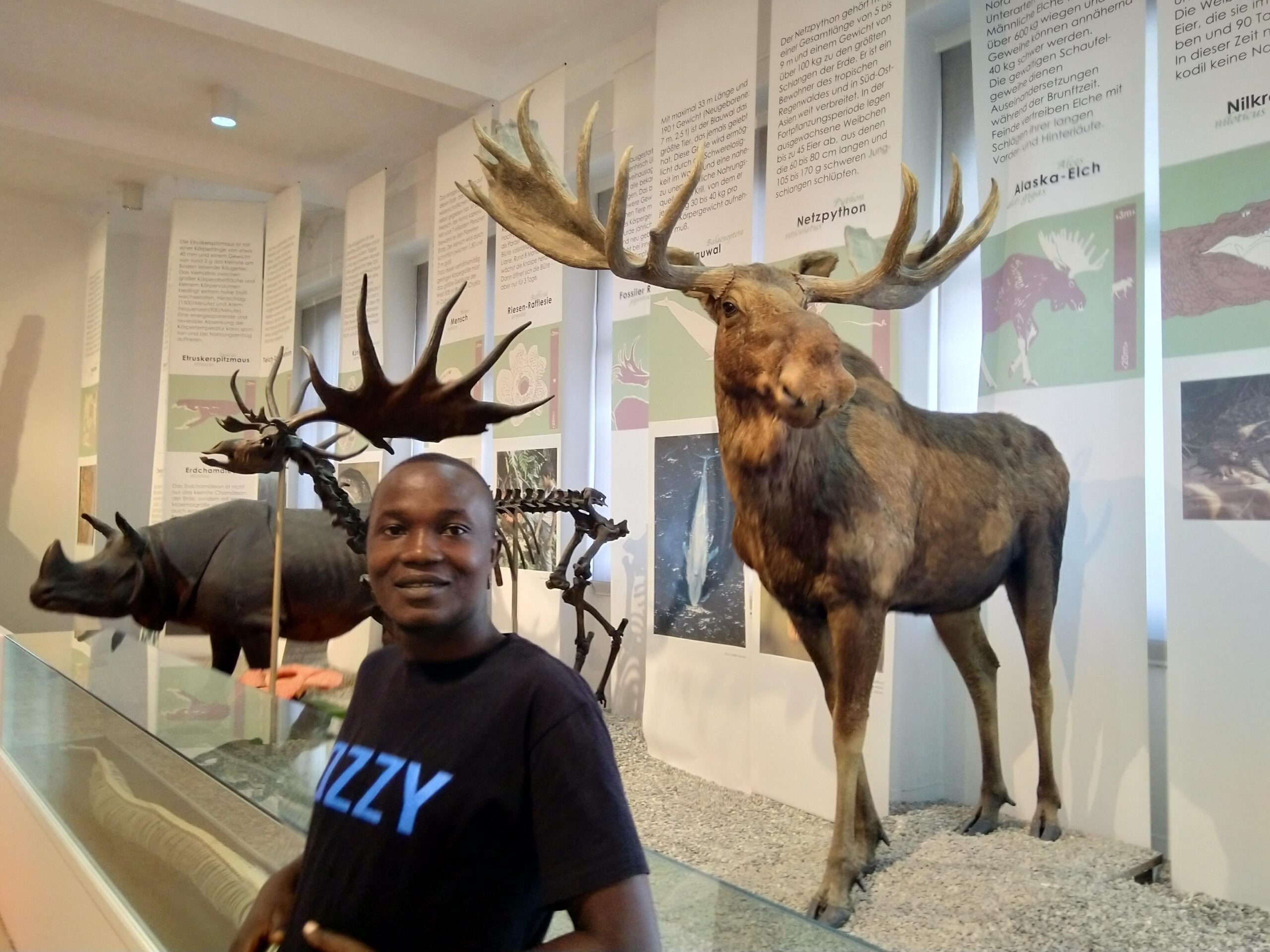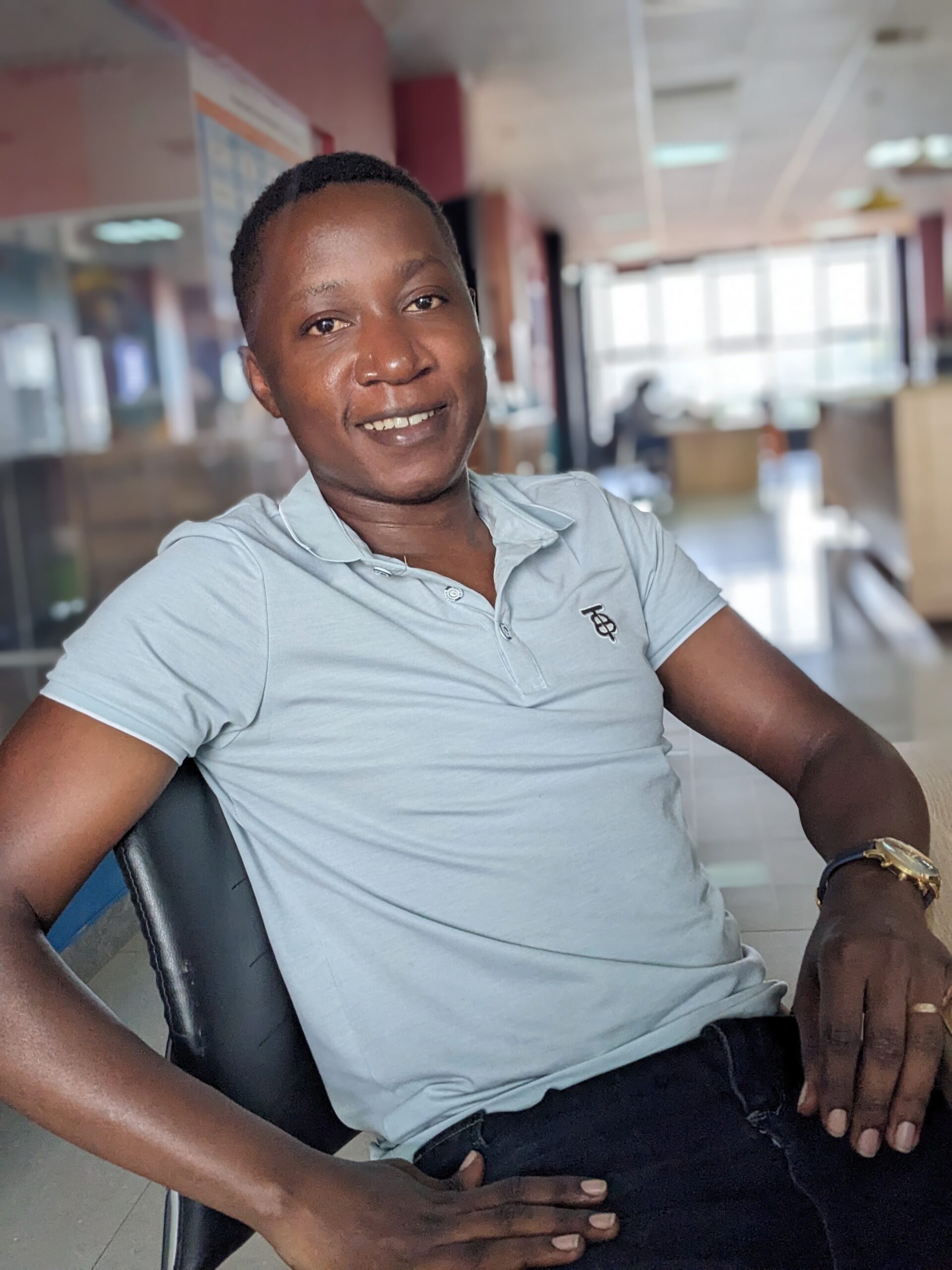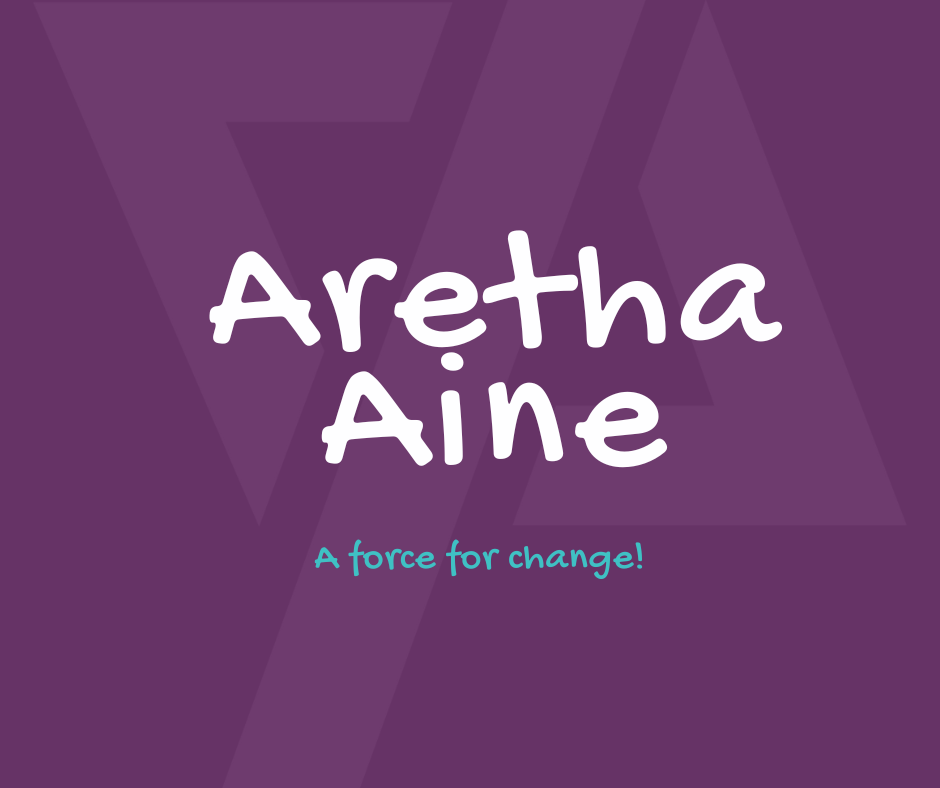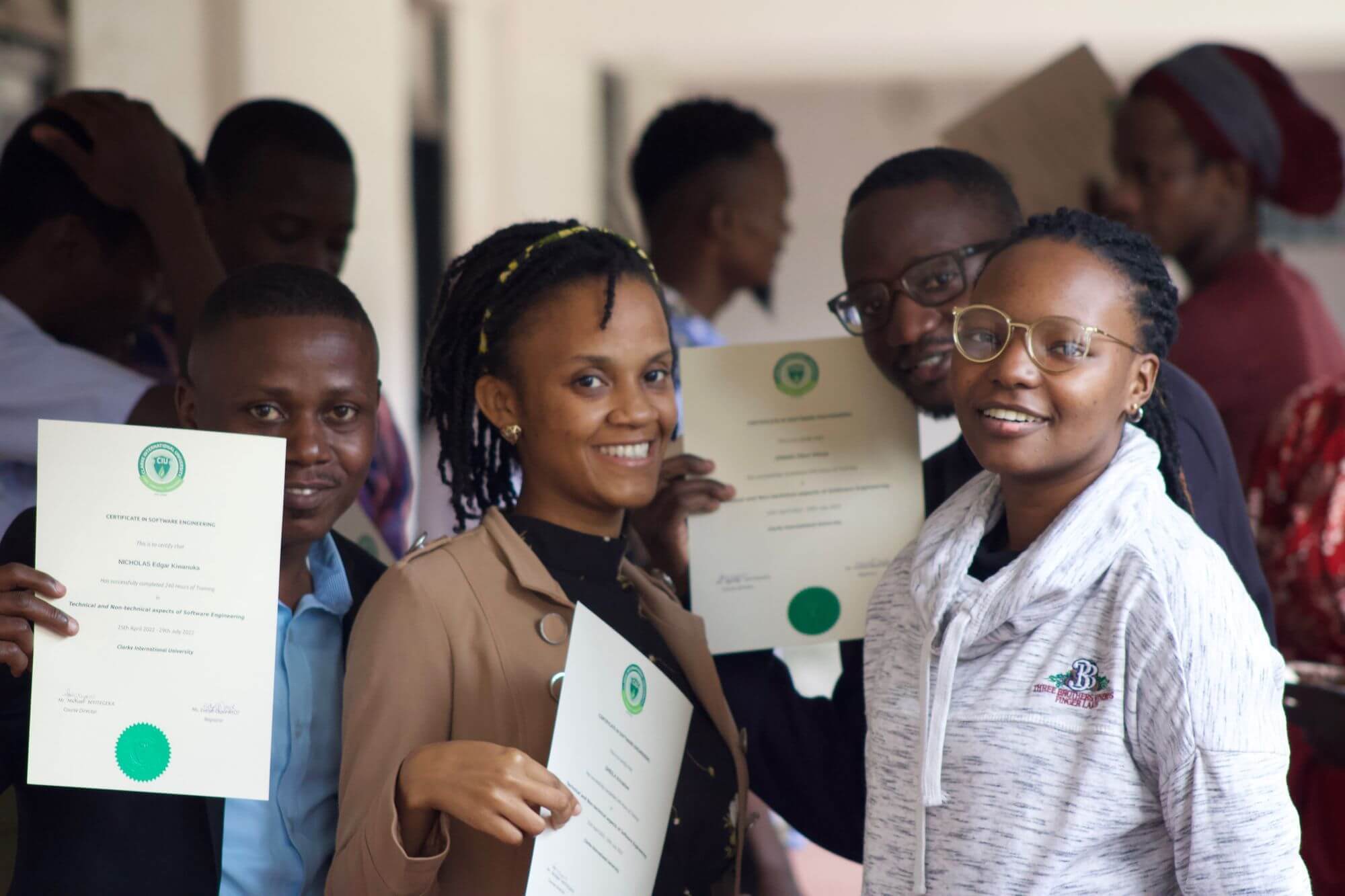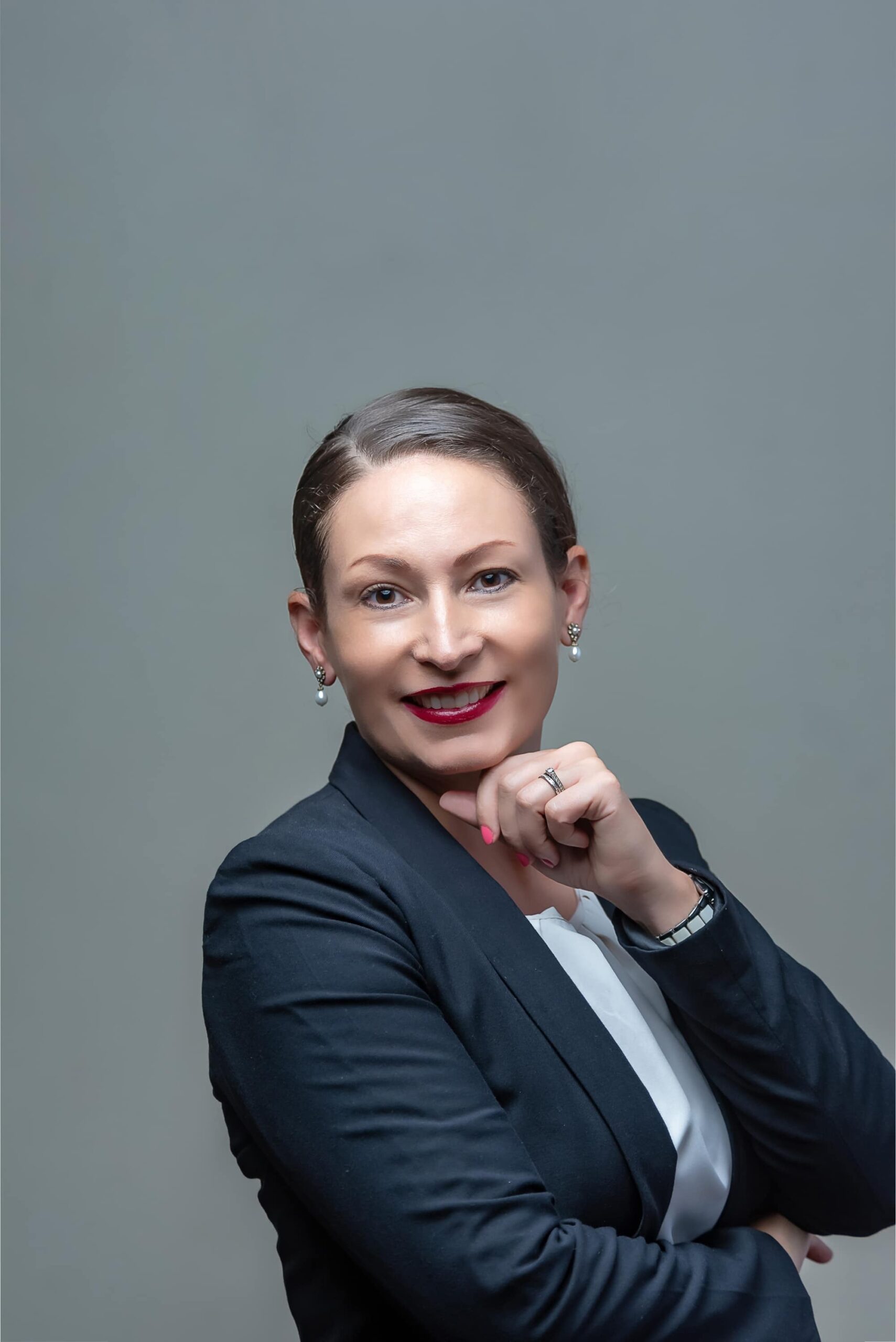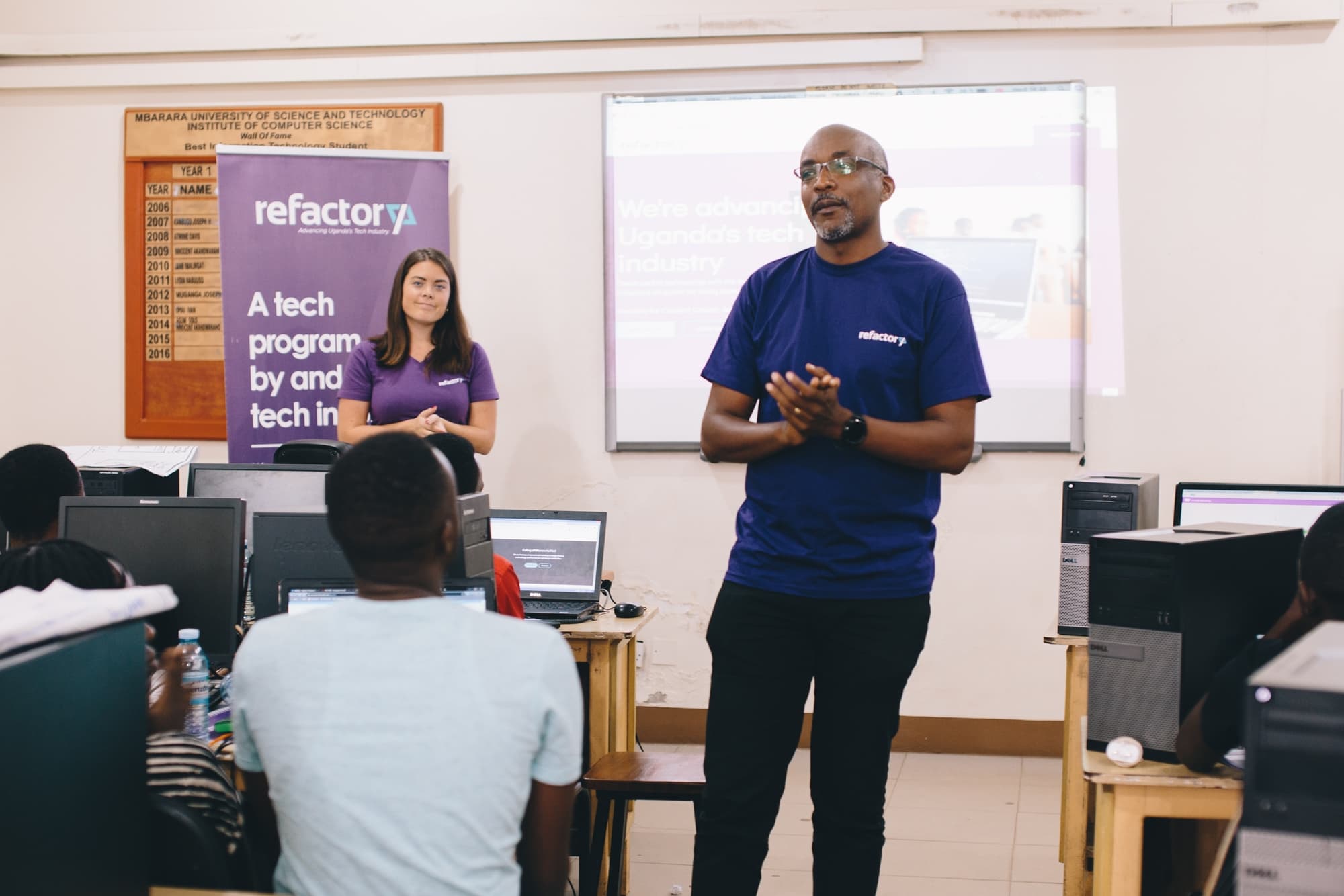It was September 2020, 40+ people-mostly students log onto Refactory’s zoom call. Many like myself are interacting with zoom for the first time and as you can imagine, lots of unintended background noises sip through. It feels like the host is playing whack-a-mole with all the muting of unmuted microphones.
“Welcome to orientation week, we shall go around introducing ourselves and we expect each one of us to turn on their video.”, says Cj the host. Panic and anxiety set in, I nearly jump out of my skin, it’s called stage fright.
“We shall start at the top of the participant’s list”, she adds. Guess who makes the top 5 on the participant’s list, your’s beloved me. Suddenly it feels like I have 40+ people in my living room all staring at me.
I muster all the courage I can and with a shaky voice, I introduce myself. It is my first experience speaking to a large audience, it was me breaking out of my shell. At the end of orientation week, it was clear that we are 40+ students from different backgrounds. It is the catalyst 6 class, a group of diverse individuals yet Refactory has only 3 months to mould us into a cohesive, high-performing unit, ready to take on the ever-evolving world of software development.
We started with Ms Julia’s class, It was an open discussion, aimed at causing transformation from within and our diversity played a significant role. Our varied experiences made it an interesting class and at display was the power of collective intelligence.
The Refactory program is a blend of technical and soft skills sessions and over the next couple of months, we were engaged with this blend, we were introduced to web development and its associated technologies, we engaged in HCD (Human-centered design), lean startup, cybersecurity, critical thinking to mention but a few. Meanwhile, find out more about the learnings of the catalyst program here.
At the start of the program, students are given a project document to analyse and create a solution. We were tasked with the development of a marketplace for farmers. The system would register farmers by location, enable them to upload products for sale and allow buyers to make purchases.
To get to this point, however, we had to first take on a technical assessment, where we had to develop a solution for another project in the presence of the facilitators. This was ideally to grade your technical competence for the task ahead.
Bootcamp projects
Bootcamp is a 6-month long engagement, with 2 months focused on further studying and 4 months dedicated to the development of partner projects.
It is during this period that you get to practice fundamental aspects of lean and agile project management, human-centred design principles, critical thinking and of course the technical development.
My team mates (Marieh Musimenta, Mariat Ndagire, Mercy Wamanga, Stephen Mwanika) and I were assigned to the Clarke farm project.
We were presented with a one-page project document from Dr Ian Clarke, the product owner, describing the project. This was simply a starting point for the team to brainstorm. We were to meet with him 2 weeks later for a one-on-one to further understand his vision for the project.
2 weeks after our first meeting with Dr Clarke, at about 5 pm on a Sunday, we were jogging around Kyaninga lake in Fort portal. What a beautiful sight to behold. It was no competition but I must say our mentor, Martin Orbans is not just brilliant but athletic too. Imagine setting off with someone and then he has to wait 30 minutes for you to catch up.
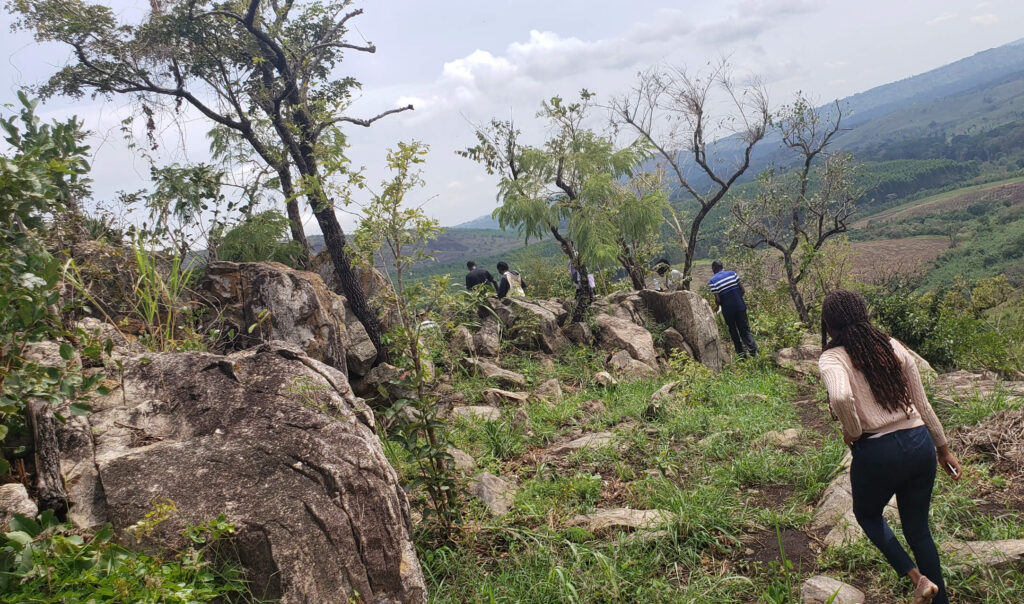
We were to spend one week, observing and interacting with him and farm managers, living and experiencing his vision for the farm.
Day 1 & 2:
Inspiration, ideation and implementation. These are the phases of human-centred Design. We sought inspiration by immersing ourselves in all that the farm experience is all about or will be about for the tourists that will visit.
We drove around the farm in an ATV (All-Terrain Vehicle), climbed rocks (bouldering), trained in basic agronomic practices, learned about poultry, learned about coffee processing and talked to the farmworkers.
What we came to fully appreciate was how impossible it was to dream up a solution unless you’ve physically engage with the potential users or tried to walk a mile in their shoes. It is safe to say our initial ideas were placed somewhere between forgotten and trashed.😂😂😂
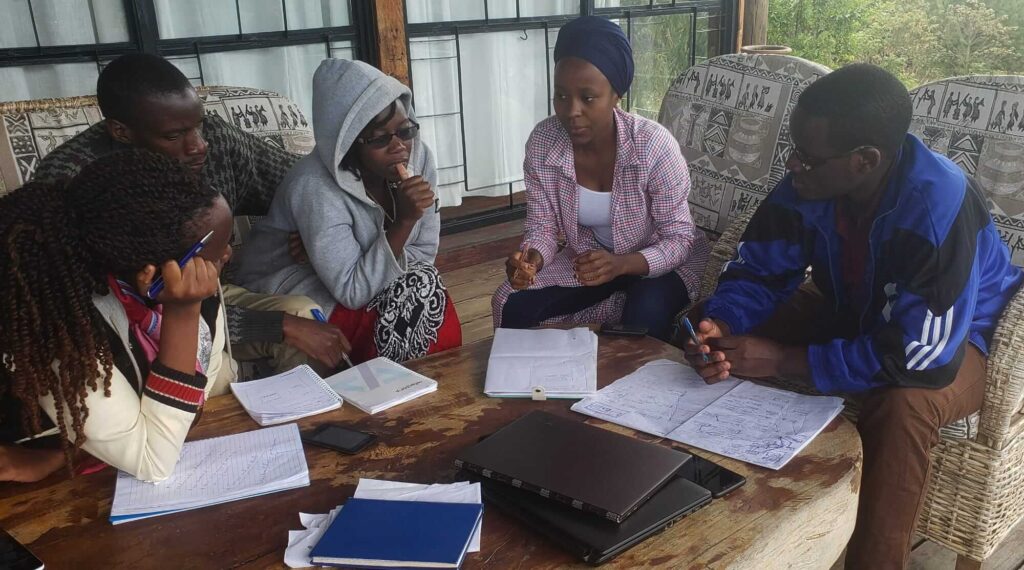
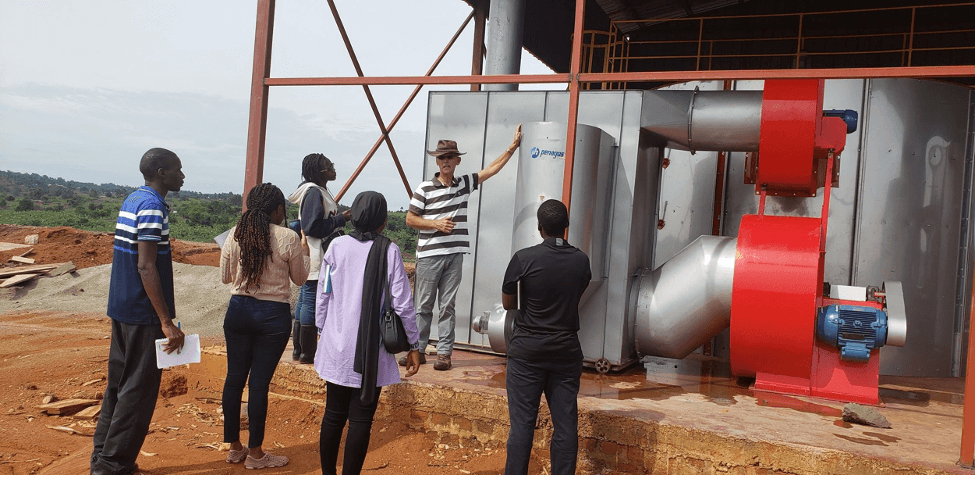
Day 3:
Ideation.
With the information we had gathered, we stayed at the house trying to make sense of it all. This was by far the most challenging part of the trip.
Trying to get a unanimous decision required back and forth conversations, toilet breaks and snacks. It was a long process and were are a very opinionated team. However, from a design perspective, it was an added advantage because everyone had an ideas to bring to the table.
Luckily, we had Martin with us to guide us through this process. We broke down the information into different sections and had to present to him each section before we could proceed. Rejection feels bad at the moment but honestly, each time he sent us back to revise the designs, we returned better.
It made it easy to present to Dr Clarke later that evening because we had talked and presented the information architecture and designs many times throughout the day, we sort of had an instinctive feel about how and what to say.
Day 4:
Research.
From the ideation phase, we identified a couple of gaps in our information pool. Dr Clarke then arranged a meeting between us and the manager at Kyaninga lodge, so that we could gather more information to fill in the gaps. We talked to the manager and the conversations were very insightful. We learned so much about the tourism process.
When we returned to the house that evening, Martin advised us to start readjusting some of the information we had while it was still fresh in our minds because we had to do a final presentation to him and Dr Clarke on the evening of Day 5, our last evening in Kyaninga.
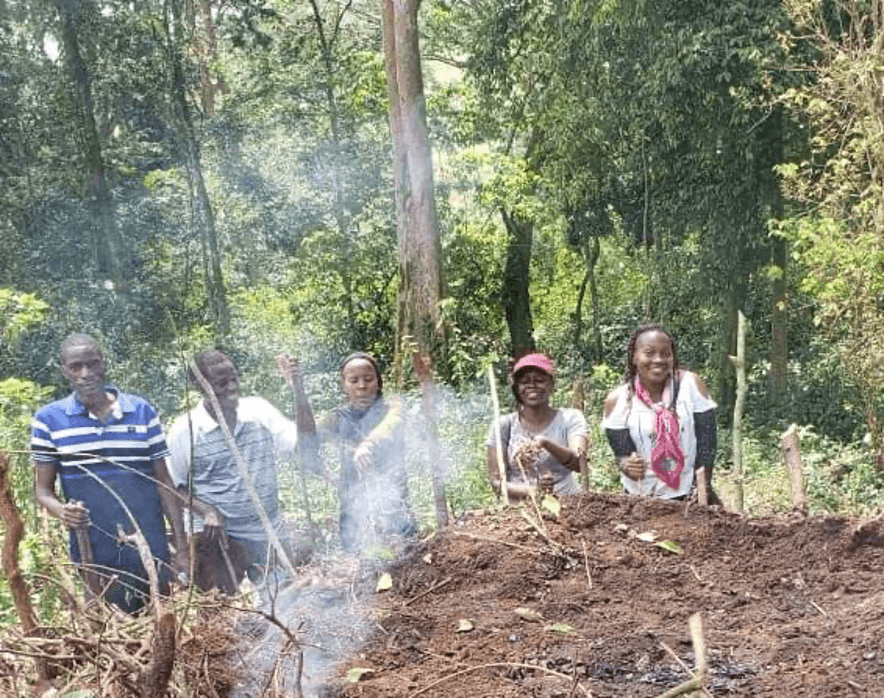
Day 5
Involved walks around the river, forests and generally engaging in the activities that tourists would enjoy while they visit a farm, it was away to rest as we prepared to head back home.
Going through Refactory was such a great experience, allow me share some of the lessons i learnt during my time in the bootcamp program;
● Agile methodologies encourage continuous and frequent interaction with the product owner, to ensure you develop a product that addresses his needs, which needs could change at any point in the project development life-cycle. Keeping frequent contact enabled the team to factor those changes into the process.
● The human-centred design approach encouraged interaction with the target system users to ensure that our design fit the needs and not our assumptions of their needs.
● Community engagement allowed the development team to get a better understanding of the system users’ needs and how best they can incorporate and address them in the developed software.
● Using the principles we learnt in Ms. Julia’s class, my team and i are making better choices about what we spend our time and energy on, and how to work more effectively with one another to achieve much better results.
● The scrum methodology also helped us as a team to appreciate each other’s strengths, learn from each other and be accountable through activities like sprint planning where each team member was assigned a task and they’re expected to share their progress daily. When one of us was faced with a challenge, we all worked together to ensure that the task at hand was completed before the end of the sprint.
Are you a company or business owner and are looking to technologically make advancements to your business, do not hesitate to reach out to us, we would be happy to consider your plan for a bootcamp project.


